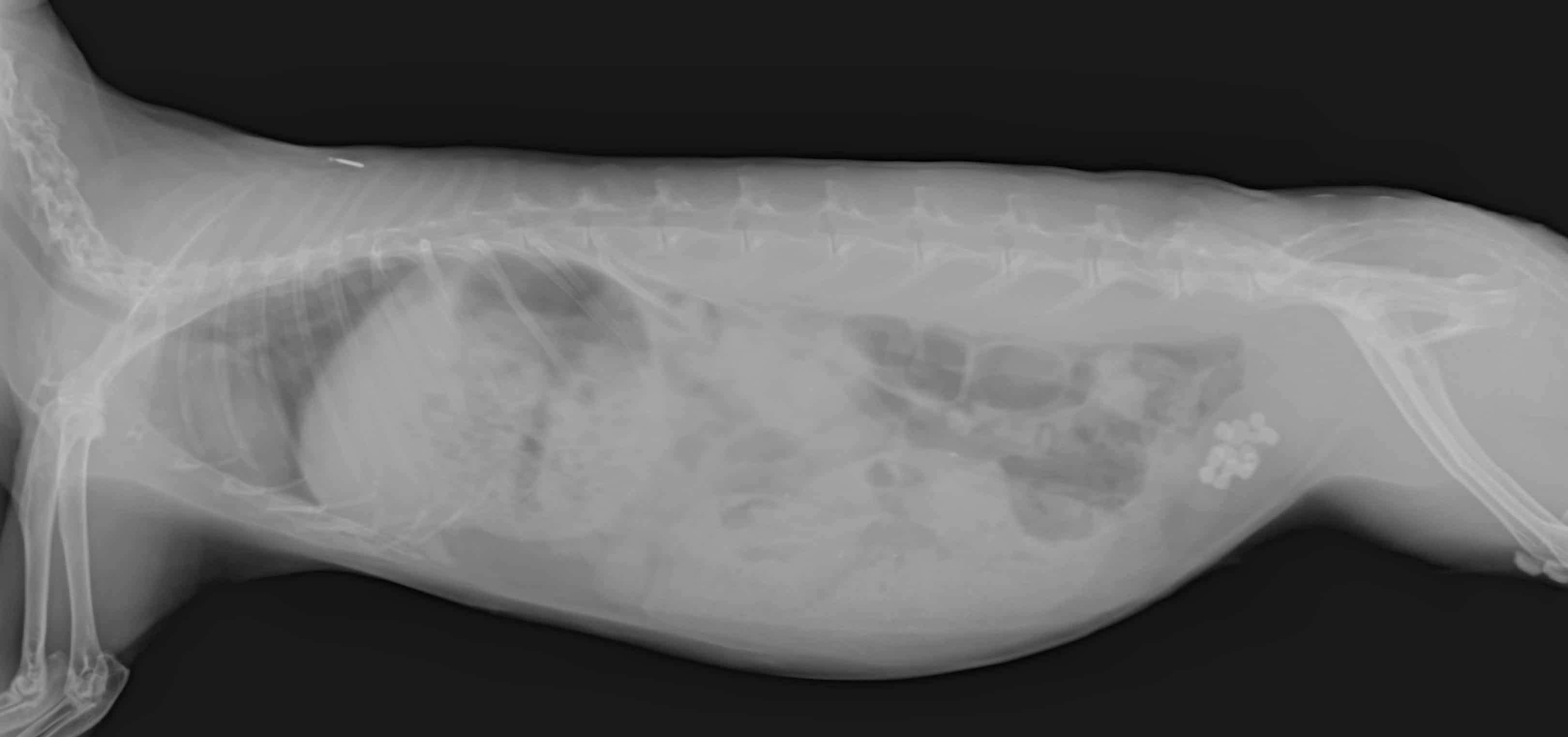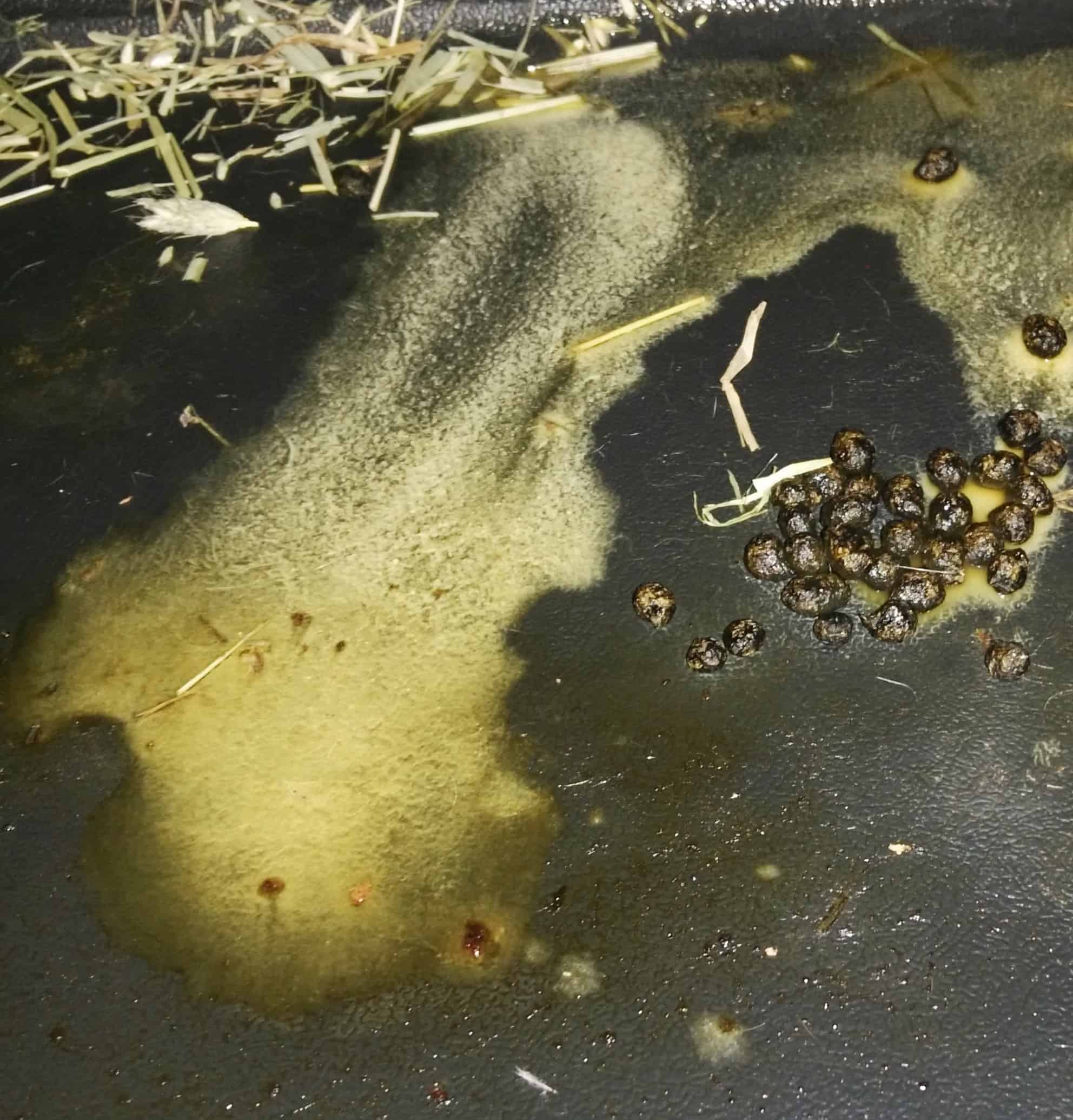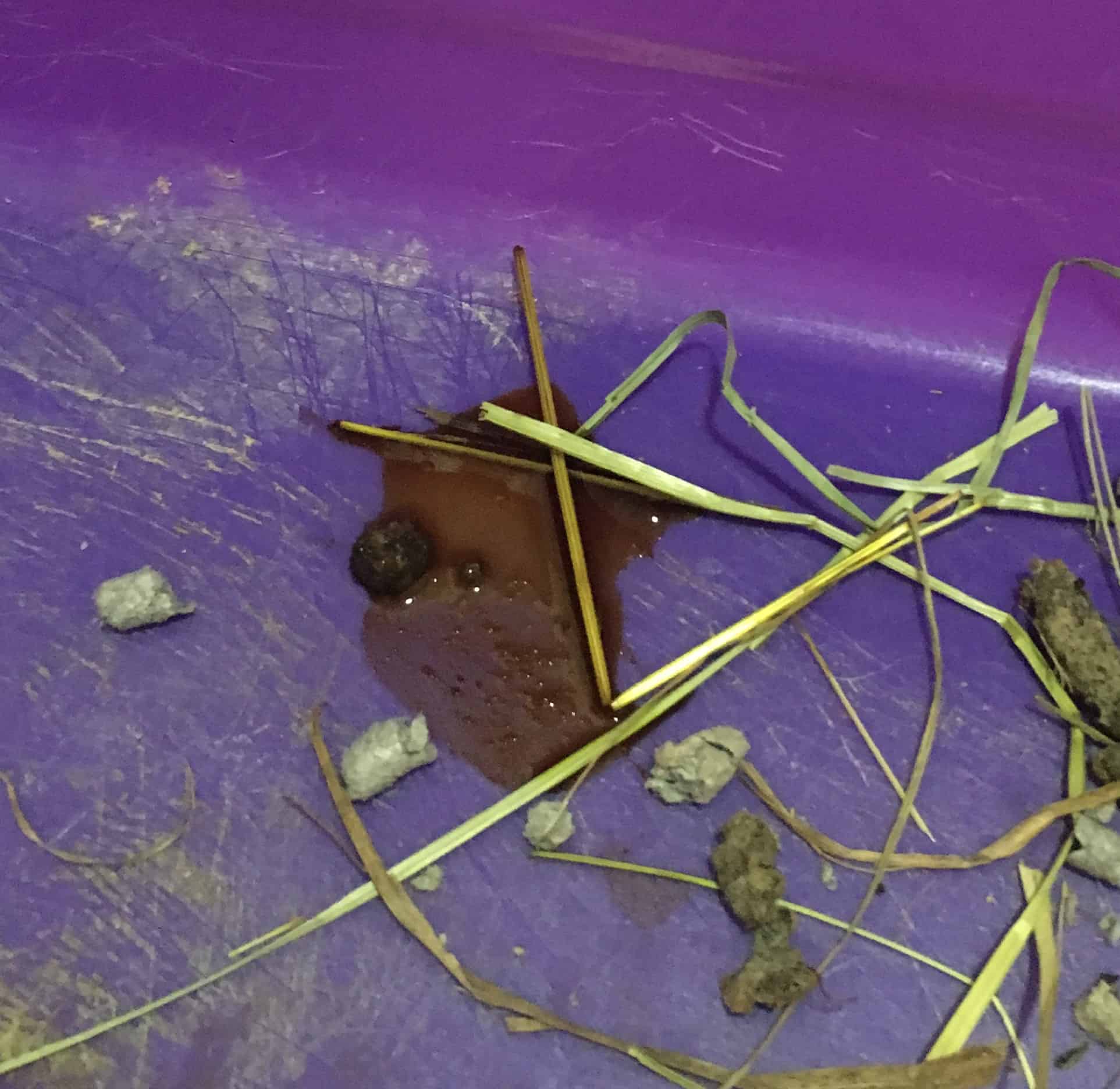
What is urolithiasis?
Urolithiasis is the presence of stones in the urinary tract. The process of sediment and urolith formation is complex and is mainly related to high concentrations of ions (mainly calcium) and the aggregation of these ions to form crystals.
What are the symptoms?
The most common symptoms include: lethargy, loss of appetite and weight, difficulty urinating, blood in the urine, dense and whitish urine, and perineal dermatitis.
If any of these symptoms occur, you should consult and visit your veterinarian.


What can trigger urolithiasis?
Diet is one of the main factors in the formation of urinary stones in rabbits due to their unique calcium metabolism. Rabbits have a unique mechanism for calcium absorption in the intestine, independent of vitamin D3 levels. They absorb almost all calcium through ingestion and excrete excess calcium through the kidneys. Therefore, when there is an excess of calcium in the urine, it precipitates due to the urine’s pH, forming crystals.
Dehydration or reduced water intake, decreased frequency and/or volume of urination, and predisposition can be other causes that promote the formation of uroliths.
How can we prevent uroliths?
To prevent stones in your rabbit, you should always provide clean, low-mineral water and a low-calcium diet, which can include:
Grass hay (Timothy grass), dactyl (orchard grass), fescue, brome, or chamomile. Avoid hay with alfalfa, clover, or dandelion. Also, avoid hays that contain grains.
Vegetables with low calcium content such as lamb’s lettuce, arugula, escarole, borage, endive, chicory, turnip greens, celery, cabbage leaves, Brussels sprouts, broccoli, thyme, kale, cucumber, bell pepper, and tomato. Do not give kale, spinach, parsley, mint, watercress, basil, chard, kale, beet greens, or carrot tops.
Regarding pellets, it is recommended that their calcium content does not exceed 0.6% or is as close to this percentage as possible. Some recommended brands include Oxbow, Bunny, Zupreem, Living World, or Beaphar.


